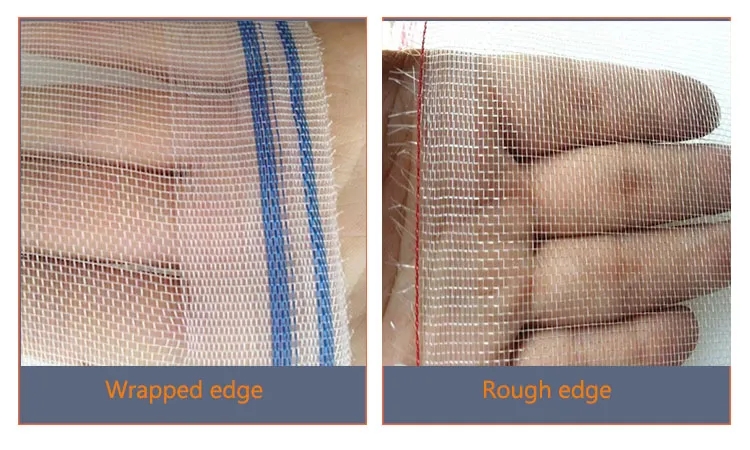Dec . 12, 2024 11:09 Back to list
Manufacturers of Expanded Metal Mesh Panels and Their Applications
Overview of Expanded Mesh Panel Factories
Expanded mesh panels have become an essential component in various industries due to their unique properties and versatile applications. These panels, manufactured by expanding sheets of metal or other materials, are characterized by their network of interlinked strands that create a lightweight yet strong structure. With a growing demand for such materials, the establishment of dedicated expanded mesh panel factories has emerged as a significant trend in manufacturing.
What is Expanded Mesh?
Expanded mesh is a type of material that is made by cutting and stretching metal sheets into a mesh pattern. The process involves slitting the sheet and then expanding it to create openings, resulting in a material that retains the strength of the sheet while being significantly lighter. Typically made from stainless steel, aluminum, or other alloys, expanded meshes are favored for their durability, corrosion resistance, and aesthetic appeal.
Key Applications
The versatility of expanded mesh panels makes them suitable for a wide array of applications across different industries
1. Construction In the construction sector, expanded mesh panels are used for architectural designs, including facades, ceilings, and safety barriers. Their ability to allow light and air while providing structural support makes them ideal for both commercial and residential buildings.
2. Industrial Use In industrial settings, expanded mesh panels serve various functions, including security fencing, machine guards, and shelving. Their robust nature can withstand harsh environments, making them suitable for factories, warehouses, and outdoor facilities.
3. Mining and Agriculture Expanded mesh is also prevalent in the mining industry, where it is used for sieving and separation processes. In agriculture, it serves as protective barriers for livestock, as well as in the development of greenhouses and animal enclosures.
4. Art and Decoration Beyond functional uses, expanded mesh panels are increasingly being utilized in art installations and as decorative elements in interior design due to their visually appealing patterns and textures.
The Manufacturing Process
The production of expanded mesh panels involves several steps
1. Material Selection The first step is selecting the appropriate material. Factors such as strength, corrosion resistance, and weight are considered based on the intended application.
expanded mesh panel factories

2. Sheet Preparation Sheets are then cut to the required dimensions. This cutting is typically done using automated machinery to ensure precision and efficiency.
3. Expansion The heart of the manufacturing process is the expansion technique. The sheets undergo a series of cuts, after which they are mechanically stretched to create the mesh pattern. This process can be performed using hydraulic or mechanical press systems.
4. Finishing After expansion, the panels may undergo various finishing processes, such as deburring, coating, or painting, to enhance their aesthetic qualities and protect against environmental factors.
5. Quality Control Finally, strict quality control measures are implemented to ensure that the produced panels meet industry standards and specific customer requirements.
Challenges in Manufacturing
While the production of expanded mesh panels is fundamentally straightforward, the factories face several challenges
- Material Costs Fluctuations in raw material prices can significantly impact production costs. Factories must strategically manage their supply chains to mitigate these effects.
- Technological Advancements Keeping up with technological advancements in manufacturing machinery and processes is essential for maintaining competitiveness. Factories must invest in upgrading their equipment regularly.
- Sustainability As industries move toward more sustainable practices, expanded mesh panel factories are challenged to adopt eco-friendly materials and processes without compromising product quality.
Future Prospects
The future of expanded mesh panel factories looks promising, driven by increasing demand across various sectors. Innovations in material science, including the development of lighter and stronger composites, could open new avenues for expanded mesh applications. Additionally, the rise of prefabrication and modular construction approaches indicates a growing market for specialized expanded mesh solutions.
In conclusion, expanded mesh panel factories play a crucial role in manufacturing a versatile product that meets the needs of diverse industries. As they navigate challenges and embrace opportunities for innovation, these factories will continue to thrive, contributing to the development of modern infrastructure and design.
-
358 Anti Climb Welded Wire Mesh Fence - Secure Perimeter Defense
NewsAug.02,2025
-
Durable Hot-Dip Galvanized Farm Field Wire Fence | Farm Security
NewsAug.01,2025
-
Temporary Fencing Solutions-Anping County Xingzhi Metal Wiremesh Products Co.,Ltd
NewsJul.31,2025
-
Hop Dipped Galvanized / PVC Coated Temporary Fence - Anping County Xingzhi Metal Wiremesh Products Co., Ltd.|Durable Temporary Fencing&Cost-Effective Security Solutions
NewsJul.31,2025
-
Hop Dipped Galvanized / PVC Coated Temporary Fence-Anping County Xingzhi Metal Wiremesh Products Co., Ltd|durable temporary fencing&corrosion-resistant solutions
NewsJul.31,2025
-
Temporary Fencing Solutions - Anping County Xingzhi Metal | Galvanized PVC Coated Fences
NewsJul.31,2025



